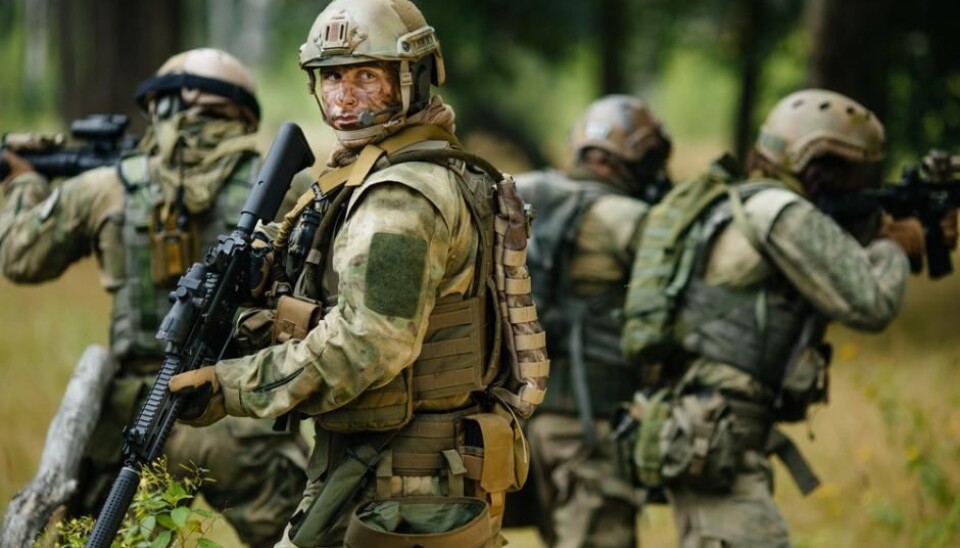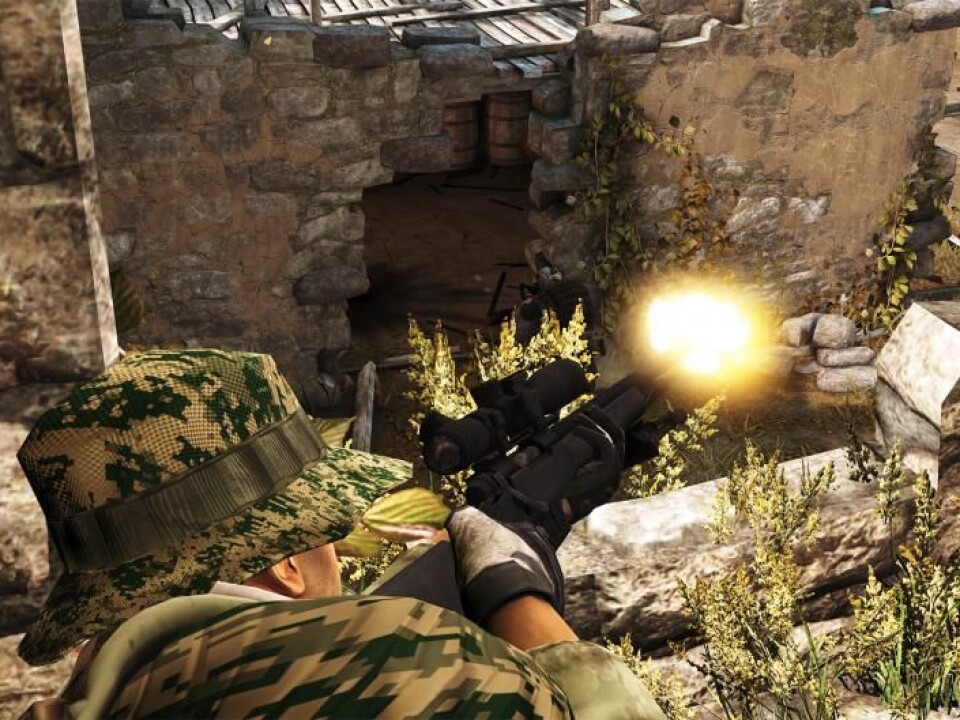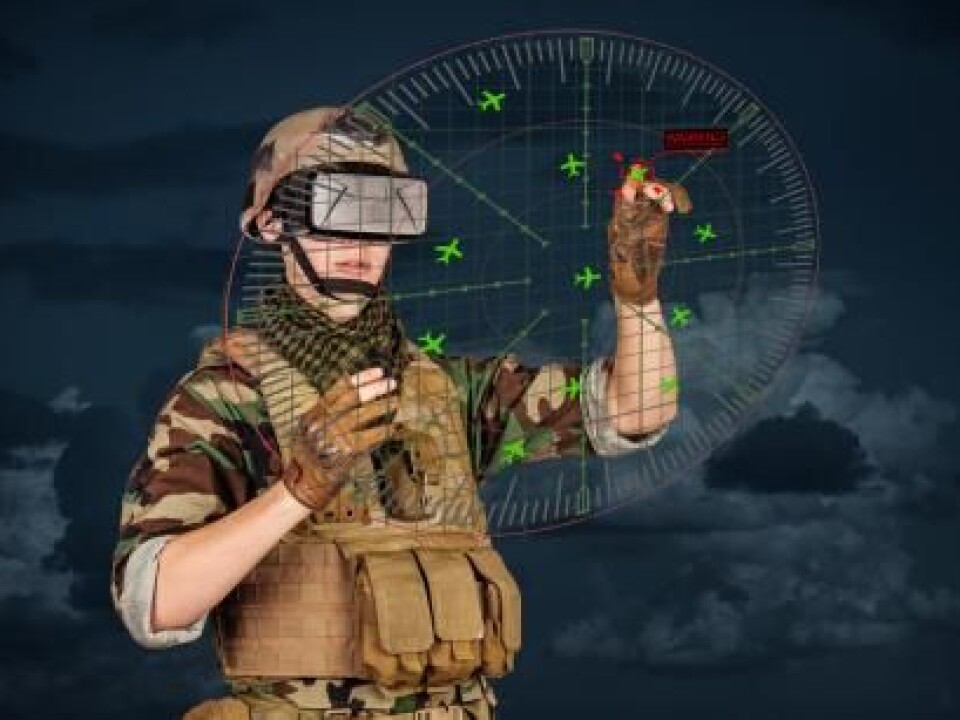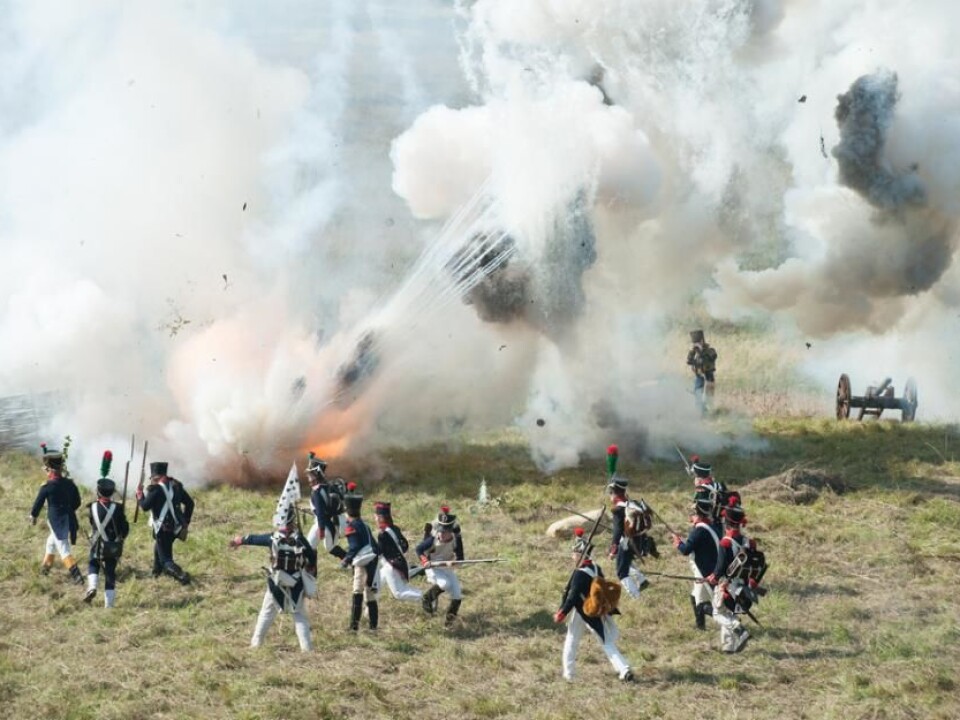
Soldiers play when they are at war
War and play have increasingly become blended together, with negative consequences for a young soldier’s perception of war, say researchers.
Play and war are not something you may usually associate with each other.
But we practice the art of war in the playground as young children when we play soldiers and robbers.
And we continue in to adulthood, when soldiers risk their lives in a real world situation, said Professor Emeritus Henning Eichberg, a philosopher in play, formerly at the University of Southern Denmark, and author of a new book, “Questioning Play.” Unfortunately, Eichberg passed away shortly after he was interviewed for this article. He had agreed to his quotes being published in the Danish version of this article on our sister site, Videnskab.dk.
“We divide the world up so that play is in one box and war in another. But it doesn’t work that way. War is a game with real costs. You kill other people in a game-like way. That’s also how we play, even if it’s uncomfortable,” he said.

Read More: Gender matters in war reporting
Dangerous to see war as entertainment
Cultural scholar Anders Engberg-Pedersen from the University of Southern Denmark, agrees with Eichberg. He too has noticed a growing trend in the crossovers between entertainment, war, and games.
“The concept of “militainment” was coined in this connection and it describes the overlap between the entertainment industry, games, and the military,” says Engberg-Pedersen.
The entertainment industry markets war as entertainment, and it can result in misconceptions among young people as to what is actually involved in war.

“Entertainment has gradually become a kind of guarantee that it’s fun to go to war. We need to watch out for this so as to avoid recruiting people under false premises,” he says.
Read More: Denmark’s Cold War struggle for scientific control of Greenland
The march to war: exercises and language are playful
Most soldiers are not aware of the playful aspects of war, said Eichberg, who experienced war himself as a soldier in Germany. He served during the Cuban Missile Crisis in 1962, where tensions between the USA and the then Soviet Union were at there highest.
“It was two years of service and continual types of games to prepare us for war, which thankfully never came. I was naive to what we were doing,” said Eichberg.

It was not until he became a philosopher that he realised just how much military exercises reminded him of the rituals of play.
“Some of what bothers me today is how we played war on a map with some assumed enemy. We made all possible types of exercises and manoeuvres, where we imagined that there was an attack from the Soviet Union. We had to report back how likely we thought it was that they would use the atom bomb,” he said.
The games had a distorting effect on the actual realities that they faced at the time, he said.
Read More: Uncovered First World War documents reveal widespread state censorship
We are more distanced from war today
Soldiers today can be even more distanced from the realities of war with the introduction of, for example, drone technology, says Engberg-Pedersen.
“Like when American soldiers kill enemies in the middle East with the push of a button. The hero’s role has completely changed because in the past you won glory by risking your own life to kill an enemy, now there’s no risk,” he says.
Drone warfare is often criticised for its similarities to a computer game and how the military uses computer simulations to prepare soldiers before being deployed.
“Increasingly, the military use war games and computer simulations to prepare soldiers for the fight. That may be fine in itself, but the games also give the impression of war as something exciting, predictable, and manageable. This is problematic because war stops being perceived as a last resort,” says Engberg-Pedersen.
Read More: Religion alone does not cause civil war
Virtual trauma preparation
Virtual reality and computer games are used for more than weapon and tactics preparation, says Engberg-Pedersen.
“Soldiers often describe the overwhelming adrenalin and fear that they feel during war. Military institutions therefore want to train these emotions before the soldiers go to war and also when they return home again since many suffer from trauma. They use virtual reality so that soldiers can learn to deal with the emotional pressure,” he says.
In fact a whole range of computer games have been developed for use in the military. And in this way, the entertainment industry and warfare are closely connected, says Engberg-Pedersen.
Read More: Finding tomorrow’s military leaders
Important to understand the dark side of play
Historically, the connection between play and war is nothing new.
War games have existed since the end of the 1700s, says Engberg-Pedersen.
In fact, according to both researchers, war and play have always been closely intertwined. And so it is important that we understand play as something that is not always pleasant and harmless, said Eichberg.
“I’d like to warn against naiveté, especially among teachers when it comes to play, because it keeps us from comparing phenomena that might not appear to be connected,” he says, and adds “but war and play are.”
---------------
Read more in the Danish version of this article on Videnskab.dk
Translated by: Catherine Jex








